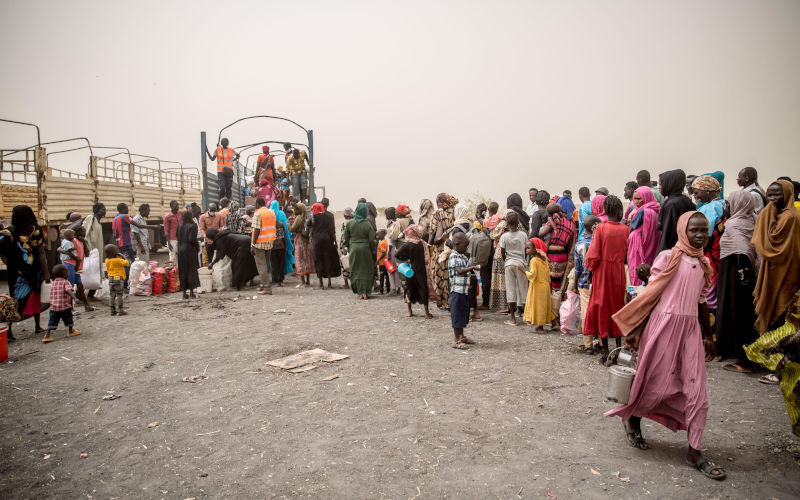Sudan cannot be an invisible tragedy
November 18, 2025
The end of violence must be a first step in the Sudan Civil War. And Australia has a key role to play.
The land of the Nile, of ancient caravans and desert winds, is fractured.
Sudan is in the grips of a horrifying civil war and one of the world’s worst humanitarian catastrophes.
More than 100,000 people have been killed, with that number growing daily. Famine spreads. There are claims of a genocide in the western Darfur region. The International Organisation for Migration (IOM) says humanitarian operations are now on the brink of collapse as more than 12 million people are displaced.
It is the latest chapter in a bloody and tragic history. The end of colonial rule in 1956 brought about a dangerous convergence of geography, identity, and power that has led to countless military coups, two civil wars, a split in the nation, a civil war in the South, the ongoing conflict in Darfur, and now, the ongoing war.
This is more than a list of devastation. Generations have grown up with war as an everyday reality, the joy of childhood erased by the horrors of violence. Entire communities have been wiped off the map, cultural heritage has been looted, and identities are under siege.
For me, this is personal. Although I was born in Juba, Sudan. My people are the Anyuak - a minority who have endured generations of repeated displacement. From age five, I too was forcibly separated from my family, beginning a long and perilous search for safety. The physical, psychological, and cultural trauma of displacement becomes embodied in the thousands who share similar stories.
The map of a country drenched in blood is written in my story. From Khartoum to Itang, Debre Zeit, Kapoeta, Nairobi, and finally Kakuma refugee camp, every step was a fight to survive.
I found refuge and a new beginning in Sydney, and now commit my life to helping others rise from survival to thrive in their new home. I have turned pain into purpose, yet every moment of peace reminds me of how delicate it is, and how quickly it unravels when a nation fails its people.
My memories are not the only thing that connects my new home to my old one.
Since 1885, when a contingent of New South Wales soldiers became some of the first Australian colonial troops sent overseas when they fought in the Sudan campaign, the two countries have been intertwined.
Today, Australian NGOs, universities, and diaspora communities connect Australia to Sudan and South Sudan. We are linked through refugee flows, global migration policies, shared climate stress, mining and commodity markets, and most importantly, the moral economy of humanitarian relief.
There is no easy answer to the desolation in Sudan. A long history of overlapping grievances, structural injustice, militarised power, ethnic divisions, and a weak state will not be resolved by any ceasefire.
But Australia has a key role to play. We are not each responsible for the whole crisis, but we are each responsible for a piece of the solution.
The end of violence must be a first step. Embracing our interconnectedness, and committing to visibility, to action, and to support must come next.
That little Anyuak girl from Juba who would not die will not accept the death of her nation or its people. I ask you to join me.
The views expressed in this article may or may not reflect those of Pearls and Irritations.

